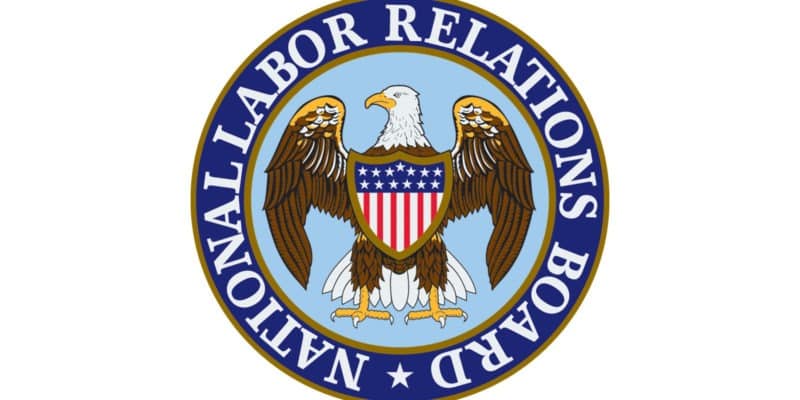Report Details How Companies Evade Taxes and Reduce Workers’ Take-Home Pay by Illegally Misclassifying Workers as Independent Contractors
by Construction Citizen | September 20, 2019
Attorney General Karl A. Racine released a report last week demonstrating how District of Columbia construction companies hurt workers, cheat taxpayers, and undercut law-abiding competitors when they illegally misclassify workers as independent contractors. Worker misclassification is a form of payroll fraud where employers categorize workers who should be considered direct employees as independent contractors. This practice is used by unscrupulous employers to get around labor laws and reduce costs, and it is especially common in the construction industry. The Office of the Attorney General (OAG) commissioned this report as part of a broader effort to crack down on wage theft in the District.
“Companies that illegally misclassify employees as independent contractors are stealing from workers, evading taxes, and gaining an unlawful edge over competitors,” said AG Racine. “The Office of the Attorney General commissioned this study to better understand the dynamics of worker misclassification and how we can fight it – and the economic analysis shows just how much this illegal practice costs workers and the community. Indeed, my office has already taken several companies to court to stop this kind of payroll fraud, and we will continue to act to protect workers when businesses violate the District’s labor laws.”
In the District, businesses are legally required to pay employees a minimum wage, contribute toward their state and federal taxes, and provide overtime pay and other benefits. Businesses do not have the same responsibilities to independent contractors, who must pay all their own taxes, are not protected by most labor laws, and do not have access to workers’ compensation or unemployment insurance. Numerous studies have documented that employee misclassification schemes are pervasive in the construction industry.
The District’s Workplace Fraud Act, which applies to the construction industry, requires companies to classify workers as employees in most circumstances. To classify a worker as an independent contractor, construction companies must prove that an individual is free from the employer’s direction and control, is economically independent, and that their work falls outside of the core business of that company.
OAG’s new report, which includes analysis by labor economists Dr. Dale Belman and Dr. Aaron Sojourner, reveals that District construction companies that misclassify workers unlawfully avoid at least 16.7 percent in labor costs compared to companies that operate legally. They do this by failing to pay overtime, shifting tax burdens to workers, and evading other taxes and required payments entirely. When employers who misclassify workers evade taxes, the District loses out on funding for critical social safety net programs. If these companies are engaged in other forms of wage theft, their savings at the expense of workers can exceed 40 percent.
…
OAG’s Increased Efforts to Protect Workers
OAG’s efforts to fight worker misclassification are just one part of a broader push to protect District workers. Last year, OAG stepped up wage theft enforcement after working with the D.C. Council on legislation granting the agency independent authority to investigate and bring these cases and increased penalties on employers who violate the District’s wage and hour laws. Wage theft is the illegal practice of denying workers’ wages or benefits they have earned. This happens when employers withhold pay, pay less than the required minimum wage, force workers to work extra hours without pay, refuse to pay overtime, or misclassify employees as contractors. Wage theft affects millions of workers nationally and happens across job types and income levels. Workers in low-wage jobs and immigrants are especially vulnerable to this type of exploitation.
Since it gained new enforcement authority, OAG can now seek to recover stolen wages, restitution of up to three times the amount of unpaid wages, and penalties from employers, and can also bring criminal charges. So far, OAG has launched more than 30 investigations into wage theft and payroll fraud, and has taken action against a home health care service provider, a national electrical contracting firm, KFC franchises, a cell phone store, a cafe chain, and other businesses that harmed District workers. To date, OAG has obtained over $400,000.00 in judgments and settlements against businesses that have stolen wages from District workers.
How to Report Wage Theft Violations
Workers who believe that they have experienced wage theft or other wage and hour violations can submit a complaint to OAG by phone at (202) 442-9854. Workers can learn about their rights under District law and how they can get help if their rights are being violated on the OAG website.
“Unfair competition for law-abiding companies: The increase in the proportion of construction workers who are misclassified as independent contractors impacts how business is done in the construction industry. Companies that fraudulently misclassify gain the advantage of reduced labor costs. They are in a position to submit lower bids than competitors who follow the law. As the number of companies that misclassify increases, law-abiding companies win fewer bids, and have less work. Over time, misclassification progresses from a method used by unscrupulous companies to earn additional profits to the price of survival in the industry. Reducing the use of misclassified workers provides a level playing field for law-abiding companies.” – According to Dr. Dale Belman and Dr. Aaron Sojourner whose economic analysis is cited in the report.









